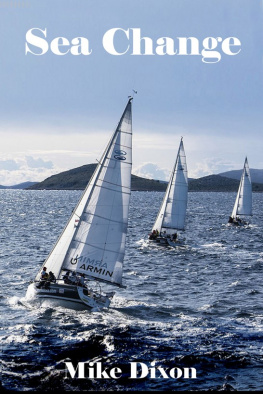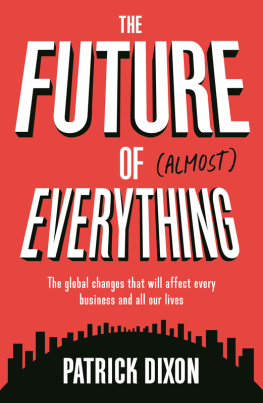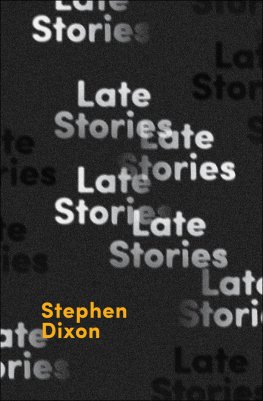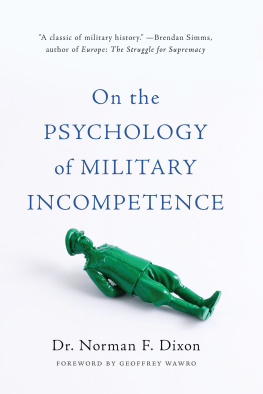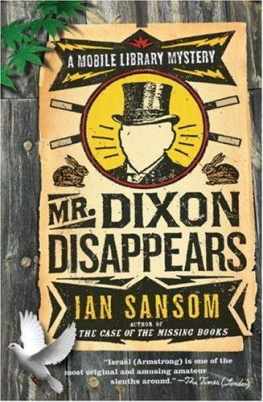Dixon - sea change 2016 edition
Here you can read online Dixon - sea change 2016 edition full text of the book (entire story) in english for free. Download pdf and epub, get meaning, cover and reviews about this ebook. genre: Detective and thriller. Description of the work, (preface) as well as reviews are available. Best literature library LitArk.com created for fans of good reading and offers a wide selection of genres:
Romance novel
Science fiction
Adventure
Detective
Science
History
Home and family
Prose
Art
Politics
Computer
Non-fiction
Religion
Business
Children
Humor
Choose a favorite category and find really read worthwhile books. Enjoy immersion in the world of imagination, feel the emotions of the characters or learn something new for yourself, make an fascinating discovery.
- Book:sea change 2016 edition
- Author:
- Genre:
- Rating:5 / 5
- Favourites:Add to favourites
- Your mark:
- 100
- 1
- 2
- 3
- 4
- 5
sea change 2016 edition: summary, description and annotation
We offer to read an annotation, description, summary or preface (depends on what the author of the book "sea change 2016 edition" wrote himself). If you haven't found the necessary information about the book — write in the comments, we will try to find it.
Dixon: author's other books
Who wrote sea change 2016 edition? Find out the surname, the name of the author of the book and a list of all author's works by series.
sea change 2016 edition — read online for free the complete book (whole text) full work
Below is the text of the book, divided by pages. System saving the place of the last page read, allows you to conveniently read the book "sea change 2016 edition" online for free, without having to search again every time where you left off. Put a bookmark, and you can go to the page where you finished reading at any time.
Font size:
Interval:
Bookmark:
SeaChange
(2016Edition)
by
MikeDixon
Smashwords Edition
Copyright 2016 Mike Dixon
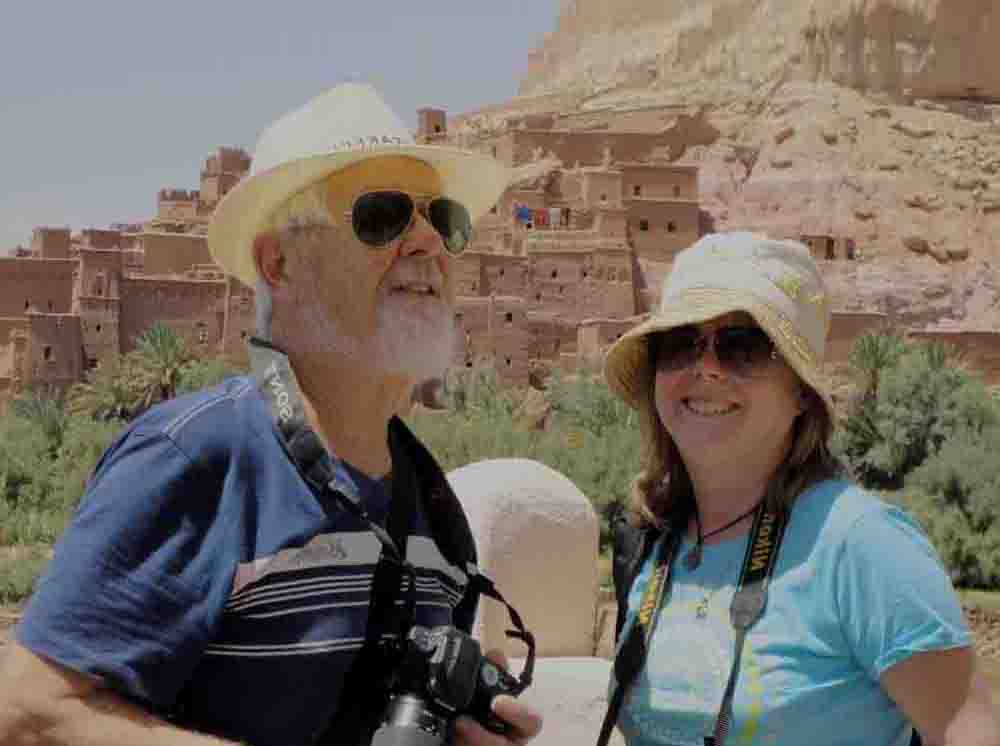
Mike started his working life as an astrophysicist, became agovernment officer, moved to public relations and entered thetourism industry via scuba diving. He made more money out oftourism than any of his other ventures but it wasnt easy. In thisfree ebook he gives advice on how to make the sea change from a salaried job totourism.
So you want tojoin the tourist industry. Wouldn't it be great to leave yourboring job and lead a more eventful life?
People in thetourism industry have the right idea. They combine work withpleasure and have a great time. The opportunities are limitless:hotel, motel, pub, restaurant, fishing, scuba, horse riding,boating, sky diving ... the list goes on and on. You could eventurn your hobby into a job.
It's amarvellous idea but don't rush into it. The rewards can be greatbut many business ventures fail and that's something to be avoided.Failure often occurs when people make career changes in middlelife.
I started mycareer as a research astrophysicist and ended up owning abackpacker resort. Between these extremes, I worked in publicadministration, public relations, journalism and the divingindustry. It was a slow evolution from one job to the next and Ilearnt a lot on the way.
I offer thefollowing advice for those who are planning a major change inlifestyle. It comes free of charge and you won't be pestered byadverts. I'll start with a list of Dos and Don'ts and follow upwith some examples.
1. Don'tinvest any significant amount of money in a new venture until youare fully aware of what you are letting yourself in for.
2. Don't placeundue reliance on the advice of others, including accountants,solicitors, architects, loan managers, advertising consultants andtravel agents.
3. Location... location ... location.
4. Carefullyresearch market size and market share.
5. Don'tborrow a cent more than necessary.
6. Don't payanyone to do anything you can do yourself.
7. Don't getinvolved in Tourism Awards.
8. Thecustomer matters more.
9. The bottomline matters most.
I'll give twoexamples. Both are from the scuba industry. Similar considerationsapply to most other businesses.
A) My friend John was an electricalengineer and a keen sailor. In his late thirties, he was taken offoperational projects and transferred to administrative work. Hehated being stuck behind a desk and resolved to leave his safe jobwith an electrical supply authority. In his spare time he built alarge boat and set sail from his home in New South Wales on hisfortieth birthday. He put down anchor in Townsville in NorthQueensland and earned a living taking divers out to the GreatBarrier Reef. That's how I got to know him.
John's switchfrom being a paid employee to a self-employed dive operator was farfrom smooth but he made it. He skippered the boat, did allnecessary maintenance work himself and kept costs to a minimum. Hisfamily was staunchly behind him and prepared to live in rentedaccommodation that was grossly inferior to their former home. Intime he traded his motor/sailing boat for a larger vessel and hisbusiness prospered. When I last heard of him, he was a highlyrespected master mariner running courses in marine safety.
B) The person who bought John'ssecond dive boat was a former farmer. He was in his early fiftiesand fed up with raising cattle. He sold the farm and used theproceeds to establish his family in a nice house on the coast. Thedive boat was intended to provide a pleasurable lifestyle andsource of income.
At first,everything went according to plan. The boat was in good condition.John had acquired a solid reputation as a dive operator and thecustomers kept coming. Skippers had to be hired but there wassufficient cash flow to pay them.
Then thingsstarted to fall apart. The new owner lacked an overall grasp of theoperation. He enjoyed going out on the boat but was not taking anyaffective part in the operation. Worse of all, he relied on othersto tell him what was going on.
Maintenancework was neglected and that led to serious and costly problems. Thereputation of the boat suffered and the supply of customers droppedoff. He was unable to judge the reliability of his skippers anddive staff. Good people deserted him and he was left with asubstandard crew. He sold the boat for a small fraction of what hehad paid for it.
Of course youwill need an accountant and you will need a solicitor. I'm notsuggesting otherwise. You'll need them to give specialist advice.Accountants are good at getting tax returns in order and advisingon loans. Solicitors are essential when purchasing real estate. Butdon't let them tell you how to run your business. You might have adifferent breed in your neck of the woods. My experience is thataccountants and solicitors are hopeless in operational matters.They imagine that everything is achieved at the stroke of a pen. Intheir world that might happen. You live in a different world.
If you arebuilding a hotel, motel, lodge or whatever, you'll need anarchitect. They are great at making buildings look right and somewin prizes. The latter are the ones to avoid. Prizes come at theclient's expense. If the client is a major company, that's fine.But, you are not a major company and your building must earn moneyto keep the bank happy. Give your architects a written brief andlook critically at everything they come up with. Hunt for ways tosave money while achieving a pleasing result.
My nextremarks are about people whose agenda is likely to be differentfrom yours. Indeed, it may be diametrically opposed to yourinterests.
Loan managersfrequently receive commissions based on the size of a loan. It maybe in their interest to grant a bigger loan than you need even ifthat places an unnecessary burden on you.
The firstimperative of advertising agents is to look after Number One, as inother businesses. They are very good at convincing clients of thevalue of their services. Convincing the client's customers oftentakes second place. You can waste a small fortune on advertising.Try to tag your adverts in some way so that you can see what yieldsresults. Speak with colleagues and exchange ideas. Treat everythingthe advertising people say with caution. After a while you shouldhave a far better grasp of your market than they do.
There are goodtravel agents. Others have attitudes analogous to those of a hyena.They will extort commissions of fifty or more percent from you,saying they control the market and you will go bust if you don'tknuckle down. We have laws to stop that sort of thing in Australiaand I have watched regulators try to enforce them. The sad fact isthat hyenas can get away with almost anything when their victimscooperate. As with consumer protection, there are limits to whatthe law can do without exerting an unhealthy influence on themarket. Keep an eye out for hyenas.
In real estateonly three things matter and I don't have to tell you what theyare. A beachfront block is worth far more than a block two streetsback. In business it makes good sense to pay the extra and get thecustom that comes with location.
By the sametoken, it makes little sense to open a business in the wrong place.Australia has lots of superb beaches but only a few attracttourists. I'm sure the same applies to beautiful scenery in NorthAmerica and picturesque villages in Europe. You have to site yourbusiness to suit your customers ... not the other way round.
Next pageFont size:
Interval:
Bookmark:
Similar books «sea change 2016 edition»
Look at similar books to sea change 2016 edition. We have selected literature similar in name and meaning in the hope of providing readers with more options to find new, interesting, not yet read works.
Discussion, reviews of the book sea change 2016 edition and just readers' own opinions. Leave your comments, write what you think about the work, its meaning or the main characters. Specify what exactly you liked and what you didn't like, and why you think so.

